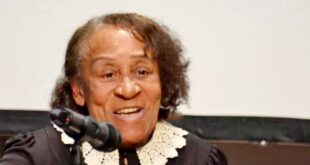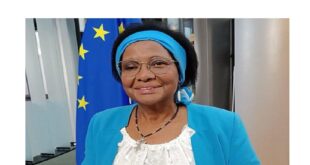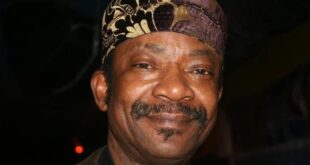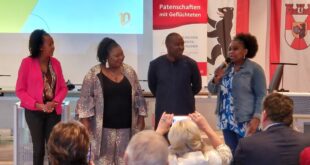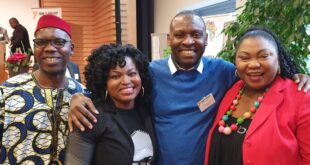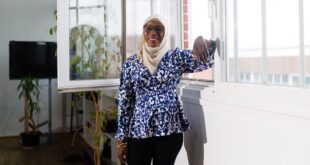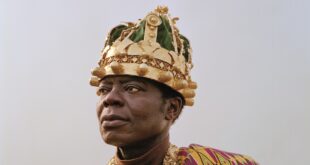The United Nations Working Group of Experts on People of African Descent undertook its first official visit to Germany from 20 to 27 February to study the human rights situation of Black people in the country. The human rights investigators met members of the Black community in five cities across Germany.
Bob Hooda, an engineer originally from Tanzania who was at the meeting in Dresden, shares his perspectives on the various forms of prejudice and discrimination to which people of African descent are subjected to.
Germany was rightly applauded by President Barack Obama and many other western leaders for being very generous when it welcomed over a million refugees in 2015.
When countries in Eastern Europe were closing their borders and building fences to keep the asylum-seekers out, Germany demonstrated exemplary hospitality by granting the asylum-seekers accommodation, generous subsistence allowances, free German lessons and a lot more.
Two years on, the pendulum is swinging the other way. Even as I write, Afghans who were refused refugee status in Germany are being herded into a plane bound for Afghanistan. Needless to say that 50 per cent of Afghanistan’s territory is still under the control of the Taliban. Gruelling stories of Afghan civilians being slaughtered by Muslim zealots abound.
The German government is now implementing measures that could easily be described as draconic. The authorities are bringing in laws and regulations which allow them to access the records of the private mobile phones, laptops and similar devices of immigrants. The government seems to be violating das Grundgesetzt – the basic law, which ensures the sanctity of the individual irrespective of his or her race, colour, religion or creed.
The United Nations Working Group of Experts on People of African Descent that visited Dresden enquired if the city was more prone to racist attitudes than other cities in the western part of Germany. The question can be answered in the affirmative.
Coming out of a one-party totalitarian state of the defunct East Germany just over a quarter of a century ago, the region is only slowly adjusting to the change that has been thrust upon it after unification.
In spite of Dresden’s long and admirable cultural history, the city will have to take further steps to combat inherent racism in the citizens. Even the judiciary is no exception. An African with permanent German residence permit charged to court on charges of bankruptcy – a common occurrence during an economic downturn – will be sent to custody.
Whereas a Polish citizen with an additional German passport with residence only in Poland and none in Germany facing more serious charges of multiple vehicle insurance frauds will be spared custody and allowed to travel back to Poland without even posting bail.
German society may be bigoted at its core, to say the least. This may partly be due to the fact that Germany had for a long time not considered itself to be a classic immigration country like the US, Canada or Australia.

At a community level, NGOs brought into existence to serve the interests of immigrants and minorities have minimal participation of the minorities. Bigotry permeates German society.
Going up the ladder to state level, Saxony has been run continuously by the conservative CDU after the fall of the wall. Since the last state elections, it has been run by a CDU-led coalition with the socialist democratic SPD as the minority partner. Experience reveals that before an impending election the slightly left-leaning SPD will woo minorities to get votes. Once firmly in the saddle, the minorities could easily be sidelined into oblivion.
Climbing the ladder to the federal level light has to be thrown on the coalition of the CDU and SPD. Even the left-leaning junior partner is advocating sending back asylum-seekers fished out of the Mediterranean to lawless Libya.
This writer was at a round-table meeting at the German Parliament in February to gain insight into the “Marshall-Plan with Africa” recently launched by the Federal Minister for International Cooperation and Development, Dr Gerd Müller.
The major objective of the plan is to fight the causes of mass migration to Europe. In other words to create opportunities in Africa enabling young Africans to train, start small businesses and find employment for themselves and others.
This writer, an African with in-depth knowledge of development issues at a micro and macro-level, approached Gunter Nooke, Chancellor Angela Merkel’s Special Representative for Africa, to exchange a few words.
Mr Nooke brushed me aside. Immediately after that, a German approached Nooke and he had no hesitation in sparing 10 minutes of his invaluable time with a seeming novice on Africa.
If this was a one-time occurrence, the writer would have ignored it as a trivial incident. Unfortunately this was the third time in a span of a year when the right-hand man of the Chancellor on African issues had brushed aside an African who is actively engaged on development issues.
This makes the writer to ponder that truly “A fish rots from the head down!”
Bob Hooda, based in Dresden, is the founder of the Power4Africa initiative (www.power4africa.de)
 THE AFRICAN COURIER. Reporting Africa and its Diaspora! The African Courier is an international magazine published in Germany to report on Africa and the Diaspora African experience. The first issue of the bimonthly magazine appeared on the newsstands on 15 February 1998. The African Courier is a communication forum for European-African political, economic and cultural exchanges, and a voice for Africa in Europe.
THE AFRICAN COURIER. Reporting Africa and its Diaspora! The African Courier is an international magazine published in Germany to report on Africa and the Diaspora African experience. The first issue of the bimonthly magazine appeared on the newsstands on 15 February 1998. The African Courier is a communication forum for European-African political, economic and cultural exchanges, and a voice for Africa in Europe.


